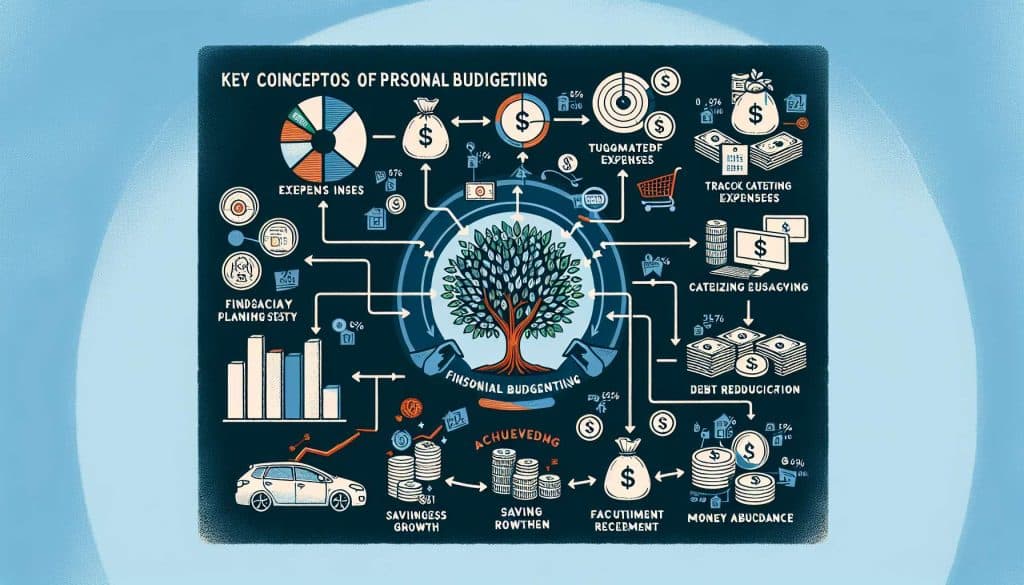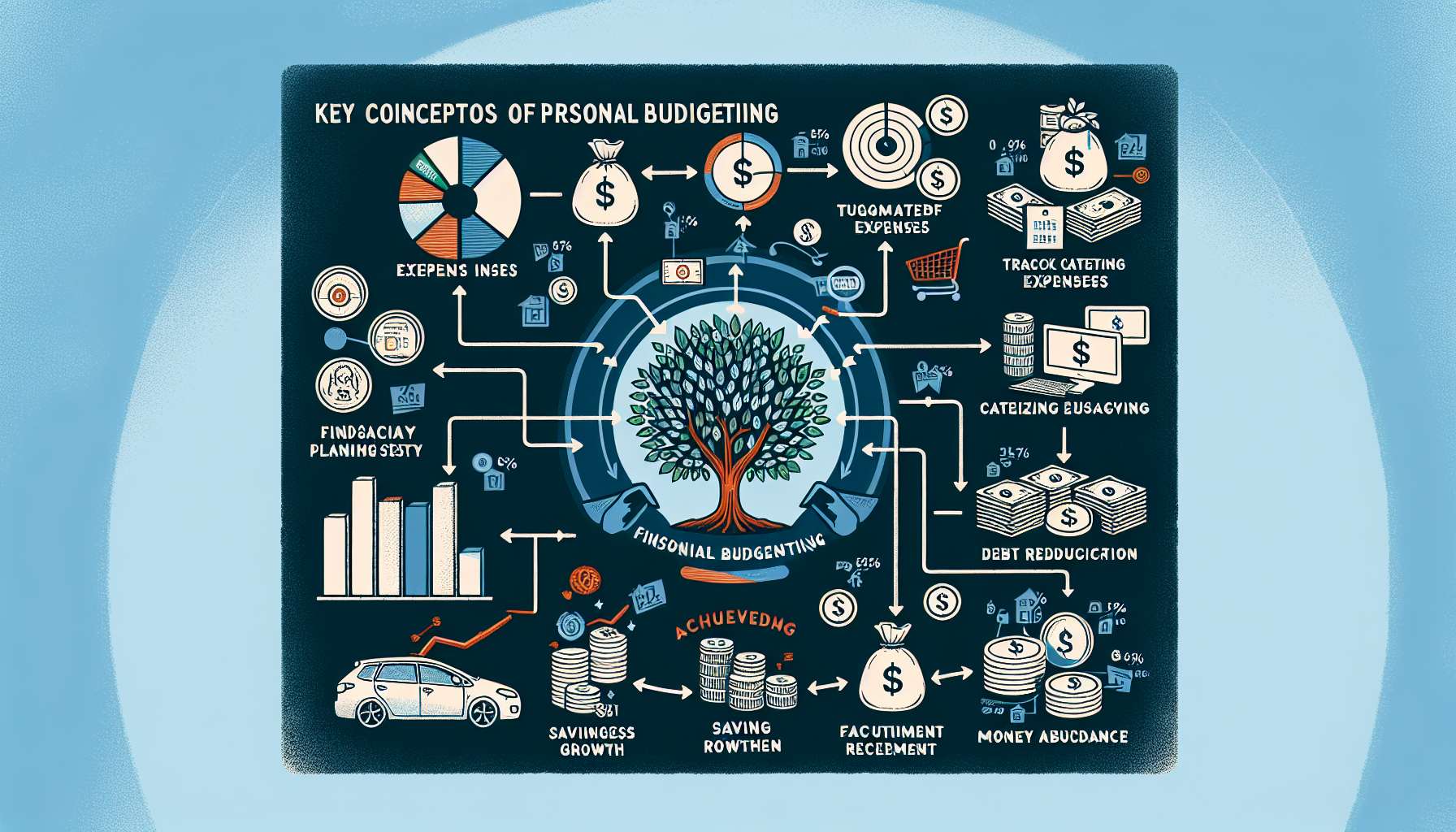Master Personal Budgeting: Key Steps to Financial Success


Introduction
In a world where consumer culture reigns supreme, personal budgeting has become more imperative than ever. Financial stability can seem out of reach with rising expenses, but mastering budgeting can offer a beacon of hope. Whether your dream is to escape the endless cycle of living paycheck to paycheck, save for a desired getaway, or prepare a safeguard for unforeseen costs, a strategic budget is your indispensable ally. This article highlights the importance of personal budgeting, detailing steps to optimize your financial management.
Anúncios
Understanding personal budgeting is fundamental before diving into its practicalities. Budgeting essentially involves creating a financial plan to manage your income. This plan helps anticipate whether you have sufficient funds for necessities and luxuries alike. The delicate balance between income and expenses is central to effective budgeting.
Embracing budgeting as a discipline can significantly boost financial well-being and independence. Monitoring spending and income ensures you’re not living beyond your means, fostering financial health. Creating a budget doesn’t only safeguard against debt; it also introduces peace of mind and future financial security.
Overview of Personal Budgeting
Assessing your financial landscape is the primary step to crafting a budget that serves your life goals. Gather pay stubs, bank statements, and expenses to comprehend your monthly earnings and expenditures. This foundation will guide the crafting of a realistic budget.
Goals are a cornerstone of effective budgeting. Clear aspirations, be it owning a home, planning celebrations, or tackling debt, provide direction and motivation. Both short-term and long-term financial goals play vital roles in shaping a practical budget.
Tracking every expense for a few months unveils spending habits and potential cutbacks. Opt for budgeting apps to document spending and recognize patterns. This practice is crucial for identifying waste and reallocating resources wisely.
Breaking down expenses by categories, such as housing, utilities, and savings, uncovers spending priorities and areas for modification. The ultimate aim is to ensure expenses remain below income levels.
Using this gathered information, you can allocate funds to each spending category in your budget, prioritizing essential bills and savings. Preparations for irregular expenses prevent unexpected shocks to your budget.
Characteristics of Effective Personal Budgeting
- Regular Financial Assessment
- Defining Clear Financial Goals
- Meticulous Tracking of Expenses
- Structured Categorization of Spending
- Flexible Budget Adjustments
Benefits of Mastering Personal Budgeting
Mastering budgeting imbues a sense of financial empowerment. By knowing where every dollar goes, you gain control over spending and can make informed decisions, cultivating financial stability and reducing stress. Here are some notable benefits:
- Achieving Financial Independence
- Reducing Debts
- Enabling Savings and Investments
- Enhancing Financial Awareness
- Building an Emergency Fund
Budgeting isn’t about limiting life—it’s a strategy to direct resources effectively. Understanding where your funds are utilized allows you to align expenses with personal targets, paving the way for freedom and calm.
By consistently saving a portion of income, you build a robust future safety net. Automation in savings ensures you prioritize future plans or emergencies without delay.
An accountability partner can greatly bolster your budgeting efforts. They provide encouragement and a sense of responsibility, enhancing your commitment to financial goals.
Avoid common pitfalls by continuing to tune your budget to reflect life’s ever-changing circumstances. This adaptability keeps your finances resilient and relevant.
Conclusion: Personal budgeting transcends mere financial constraints; it’s about maximizing life quality through efficient resource management. Starting today advances you toward a calmer and more secure financial future.





